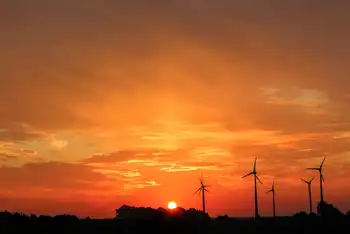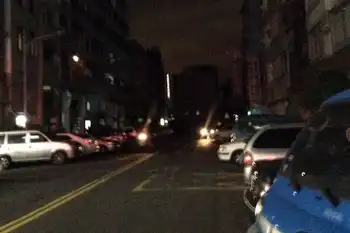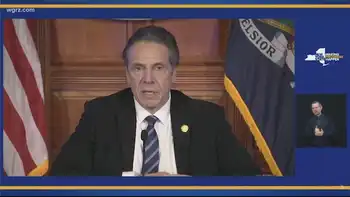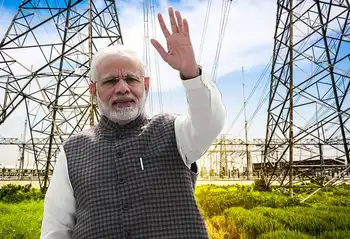EU Nuclear Power Dispute strains electricity market reform as Germany resists state aid for French reactors, while Eon urges cooperation to meet the energy transition, low-carbon goals, renewables integration, and cross-border power trade.
Key Points
A policy standoff between Germany and France over nuclear energy's role, state aid, and electricity market reforms.
✅ Germany opposes state aid for existing French nuclear plants.
✅ Eon CEO urges compromise to advance market reform and decarbonization.
✅ Cross-border trade shows reliance on French nuclear amid renewables push.
Germany should stop trying to impose its views on nuclear power on the rest of the EU, the head of one of Europe’s largest utilities has warned, as he stressed its importance in the region’s clean energy transition.
Leonhard Birnbaum, chief executive of German energy provider Eon, said Berlin should accept differences of opinion as he signalled his desire for a compromise with France to break a deadlock amid a nuclear power dispute over energy reforms.
Germany this year shut down its final three nuclear power plants as it followed through on a long-held promise to drop the use of the energy source, effectively turning its back on nuclear for now, while France has made it a priority to modernise its nuclear power plants.
The differences are delaying reforms to the region’s electricity market and legislation designed to meet greenhouse gas emissions targets.
One sticking point is Germany’s refusal to back French moves to allow governments to provide state aid to existing power plants, which could enable Paris to support the French nuclear fleet.
The Eon chief, whose company has 48mn customers across Europe, said it would be “better for everyone” if the two countries could approach the dispute with the mindset that “everyone does their part”, even as Germany has at times weighed a U-turn on the nuclear phaseout in recent debates.
“Neither the French will be able to persuade us to use nuclear power, nor we will be able to persuade them not to. That’s why I think we should take a different approach to the discussion,” he added.
Birnbaum said Germany “would do well to be a bit cautious about trying to impose our way on everyone else”. This approach was unlikely to be “crowned with success”.
“The better solution will not come from opposing each other, but from working together.”
Birnbaum made the comments at a press conference announcing Eon’s second-quarter results.
The company raised its profit outlook, predicting adjusted net income of €2.7bn to €2.9bn, and promised to reduce bills for customers as it hailed “diminishing headwinds” following the energy crisis caused by the war in Ukraine.
Birnbaum, whose company owned one of the three German nuclear plants shut down this year, pointed out that French nuclear energy was helping the conversion to a system of renewable energy in Germany at a time when Europe is losing nuclear power just when it needs energy.
This was a reference to Europe’s shared power market that allows countries to buy and sell electricity from one another.
Germany has been a net importer of French electricity since shutting down its own nuclear plants, which last month prompted the French energy minister Agnès Pannier-Runacher to accuse Berlin of hypocrisy.
“It’s a contradiction to massively import French nuclear energy while rejecting every piece of EU legislation that recognises the value of nuclear as a low-carbon energy source,” Pannier-Runacher told the German business daily Handelsblatt.
She also criticised Berlin’s drive to use new gas-fired power plants as a “bridge” to its target of being carbon neutral by 2045, even as some German officials contend that nuclear won’t solve the gas issue in the near term, arguing that it created a “credibility problem” for Germany: “Gas is a fossil fuel.”
Berlin officials responded by pointing out that Germany was a net exporter of electricity to France over the winter when its nuclear power stations were struggling to produce because of maintenance problems.
They added that the country only imported French power because it was cheaper, not because their country was suffering shortages.
Berlin argues that renewable energy is cleaner and safer than nuclear, despite renewable rollout challenges linked to cheap Russian gas and grid expansion, and accuses France of seeking to protect the interests of its nuclear industry.
In Paris, officials see Germany’s resistance to nuclear energy as wrong-headed given the need to fight climate change effectively, and worry it is an attempt to undercut a key aspect of French industrial competitiveness.
Related News












